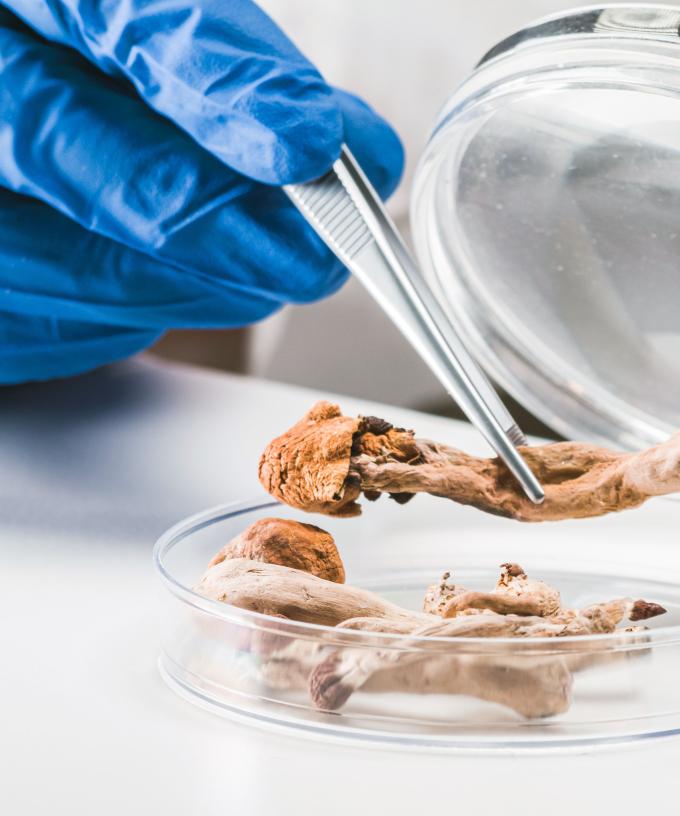ASX-listed small-cap drug companies are soaring as two firms announce plans to take advantage of Australia’s medical regulator relaxing the rules around two mind-altering drugs.
The Therapeutic Goods Administration on Friday announced it was down-scheduling psilocybin and MDMA, allowing both to dispensed as of July 1 by authorised psychiatrists to treat certain mental health conditions.
The TGA said it would allow psilocybin – the active component in so-called “magic mushrooms” – to be prescribed for treatment-resistant depression, while MDMA – sometimes known as “molly” or “ecstasy” – could be dispensed for post-traumatic stress disorder.
Shares in ASX-listed Little Green Pharma and Emyria were by up more than 40 and 50 per cent respectively at midday on Monday. Incannex Healthcare and Creso Pharma were both up a little more than 10 per cent.
A drug discovery company that listed on the ASX in 2020, Emyria said in an investor presentation it had experience navigating the “authorised prescriber” pathway, with 16 successful applications that have have allowed 8,000 patients to use unregistered medicine derived from cannabis.
Each request for “authorised prescriber” status must provide detailed plans and protocols for selecting managing patients, supporting therapies and safety monitoring, Emyria said.
The company is also investigating 140 different MDMA-like compounds with its partner, the University of Western Australia, that could work faster than MDMA or treat other neurological disorders, particularly movement disorders.
“The mental health crisis – in Australia and around the world – continues to have untold cost, which is why the TGA’s move to reschedule MDMA and psilocybin is timely and world-leading,” managing director Michael Winlo said.
He said the decision would allow Emyria and its partners to build a stronger evidence base for treating mental health conditions with psychedelics.
Little Green Pharma said its subsidiary, Perth-based Reset Mind Sciences, was in the advanced stages for a clinical trial to evaluate the use of psilocybin for treatment-resistant depression.
It has spent 18 months finalising the trial design and is awaiting Ethics Committee approval. The principal investigator is University of Western Australia Professor Sean Hood.
Reset is also in the final stages of commissioning a bespoke “magic mushroom” cultivation facility that would be located at one of Little Green Pharma’s cannabis growing sites.
Reset CEO Shaun Duffy called the TGA’s announcement “truly ground-breaking in the field of psychedelics”, although also backed by a significant body of research.
“We’re still working through the full implications of the TGA’s decision for our strategy moving forward, but suffice to say it’s a very positive development for us and will result in the acceleration of our plans,” Mr Duffy said.
Incannex announced on January 18 that 29 patients had completed its 10-week treatment program evaluating the use of psilocybin as a treatment for generalised anxiety disorder.
Enrolment in the study is still under way with recommendations from a data safety monitoring board due in March.
Creso Pharma’s Canadian subsidiary, Halucenex Life Sciences, in December also began a clinical trial evaluating psilocybin to treat mental illness.







